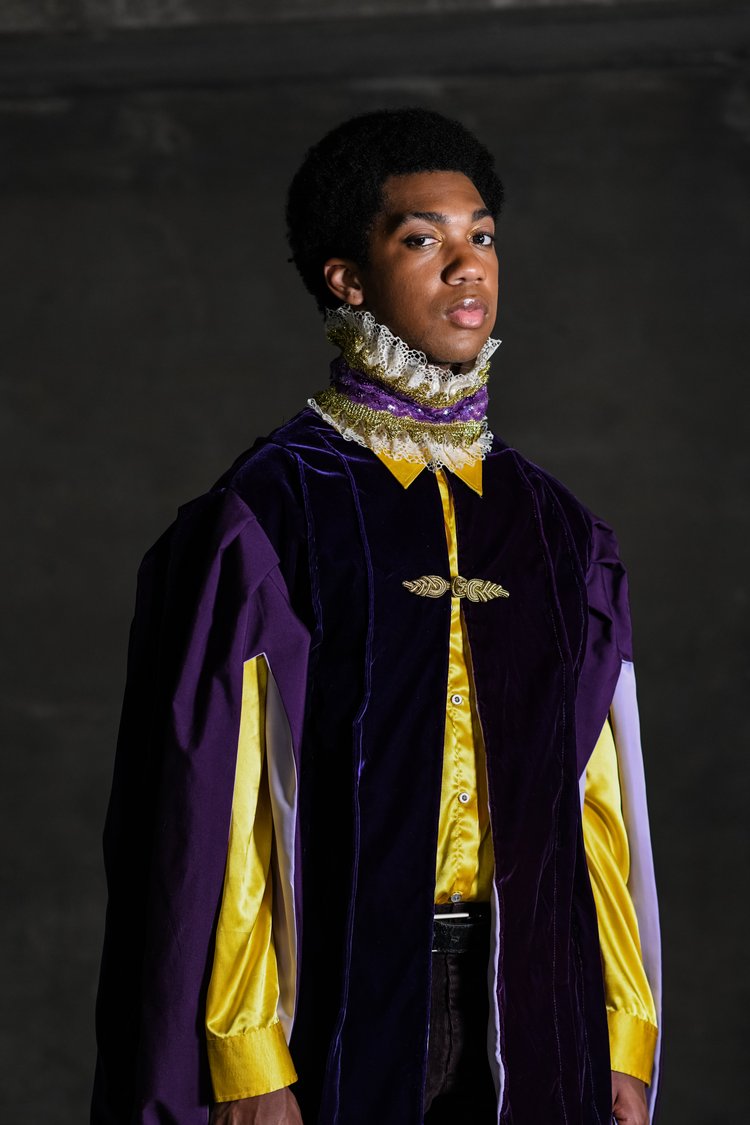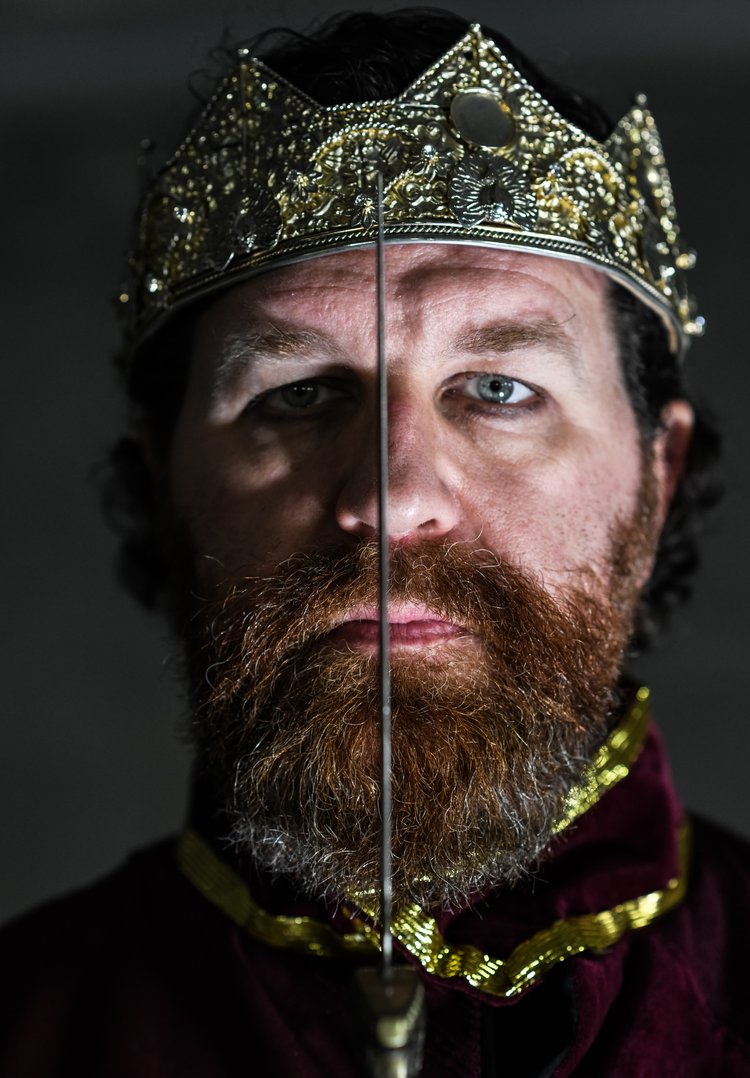From the Nashville Shakespeare Festival
Hamlet

It seems to me that the primary difficulty, or “rub” in producing Hamlet, perhaps the most well-known play that Shakespeare wrote, and arguably the greatest play ever written (depending, of course, upon your rubric), is that so many of the lines have become memes in modern culture. From the Star Trek series’ appropriation of everything from lines to titles (e.g. Star Trek VI: The Undiscovered Country) to Disney’s adopting the entire plotline (Lionking 1994), to the modern FX television drama series Sons of Anarchy, the play is firmly entrenched in the modern psyche. The lines have taken up so much baggage in popular culture that it is easy to forget that they are utterances of characters with their own intentions, goals, reasons and dreams. The Nashville Shakespeare Festival’s wonderful production of Hamlet, going on now through April 28th, and in collaboration with Lipscomb University, realizes the bard’s original context with great intention and demonstrates why these lines are so important to western culture in the first place.
Take for example, the famous line: “To thine own self be true, and it must follow, as the night the day, Thou canst not then be false to any man.” These are spoken by the tiresome, longwinded bore Polonius as he bids his eldest son Laertes farewell. It was a stroke of genius in casting to alter this character to “Polonia” (now Laertes’ mother, and played by the veteran Denice Hicks). The line is an offhand remark, and in Hick’s deft delivery, the character becomes reminiscent of a meddlesome “Karen,” a woman and mother more interested in her own (and her familial) social standing than her children’s physical and mental health.

Unfortunately, this casting decision does create a slight (or actually highlight an already extant) tension in the plot. As a maternal figure, Polonia’s accidental murder attracts more sympathy than the male Polonius usually attracts, and certainly more than that expressed by Hamlet for committing the crime. In anycase, throughout the production, Hick’s comedic timing was unmatched. Her interjections during speeches or songs, “too long!” or when she doubled the gravedigger, singing Carole King’s “I Feel the Earth Move” she provoked the audience to laugh in spite of themselves, and provided an important foil of ridiculousness that functioned to enhance the tragedy.
Even more inspired is David Long III”s Hamlet. Charismatic and intense, Long’s reading of the part cleverly added a contemporary stylized and defiant flamboyance to the Prince’s feigned madness (at moments his presence and determination were remarkably reminiscent of that other artist, the one formerly known as Prince), and his biting cruelty to Ophelia is both shocking and chilling. His fourth soliloquy, “To be or not to be,” a sine qua non of the production’s success, was performed directly, without affect or pretension. It is read with a clear mind, as he is reasoning and determining the fate of Claudius in front of the audience. This moment of dark, intellectual reason and awful morality enriches and adds awe to this troubled character and he transformed it from the most famous line in theater to what it should be–a pronouncement from a desperately troubled man.
This is supported by Cleo Graham’s fetching, naïve Ophelia—when she and Hamlet sit on the stage’s edge and bicker (a modern-day Charles Kemble and Harriet Smithson) it was an appropriately heart-rending moment, steeped further by Graham’s eloquent delivery of the flowers scene—she brought to life the madness, love, and grief that inspired Hector Berlioz’s own mad “artist” two centuries ago. Regan Mills’ Horatio was fierce and as trusty as Alex Dee’s Laertes was heroic. As Rosencrantz and Guildenstern, Rachel Penner and Connor Adair were darkly hilarious, deserving of all that they got. I loved the way that June Kingsbury’s excellent costumes set them apart from the rest of the cast. D. Scott Baker’s Claudius was a perfect two-faced, calculating bastard whose lechery trumps his guilt–yet at moments it seems he might just love the regal Gertrude (Shannon Hoppe) as much as she loves being Queen. Jacob Allen’s sound design added a certain otherworldly nature to the play, reminding us throughout that it was a ghost that had inspired the events. I do wish that someday a production might show us the ghost (every production I’ve ever scene has him offstage with a disembodied voice) and there are some fabulous scores of incidental music for Hamlet that I would love to hear in a play setting, especially Tchaikovsky’s, but that might be a little expensive. Until then, this production is fantastic, and everything one could hope for—see it while you still can, it will be at Collins Alumni auditorium through April 28.



